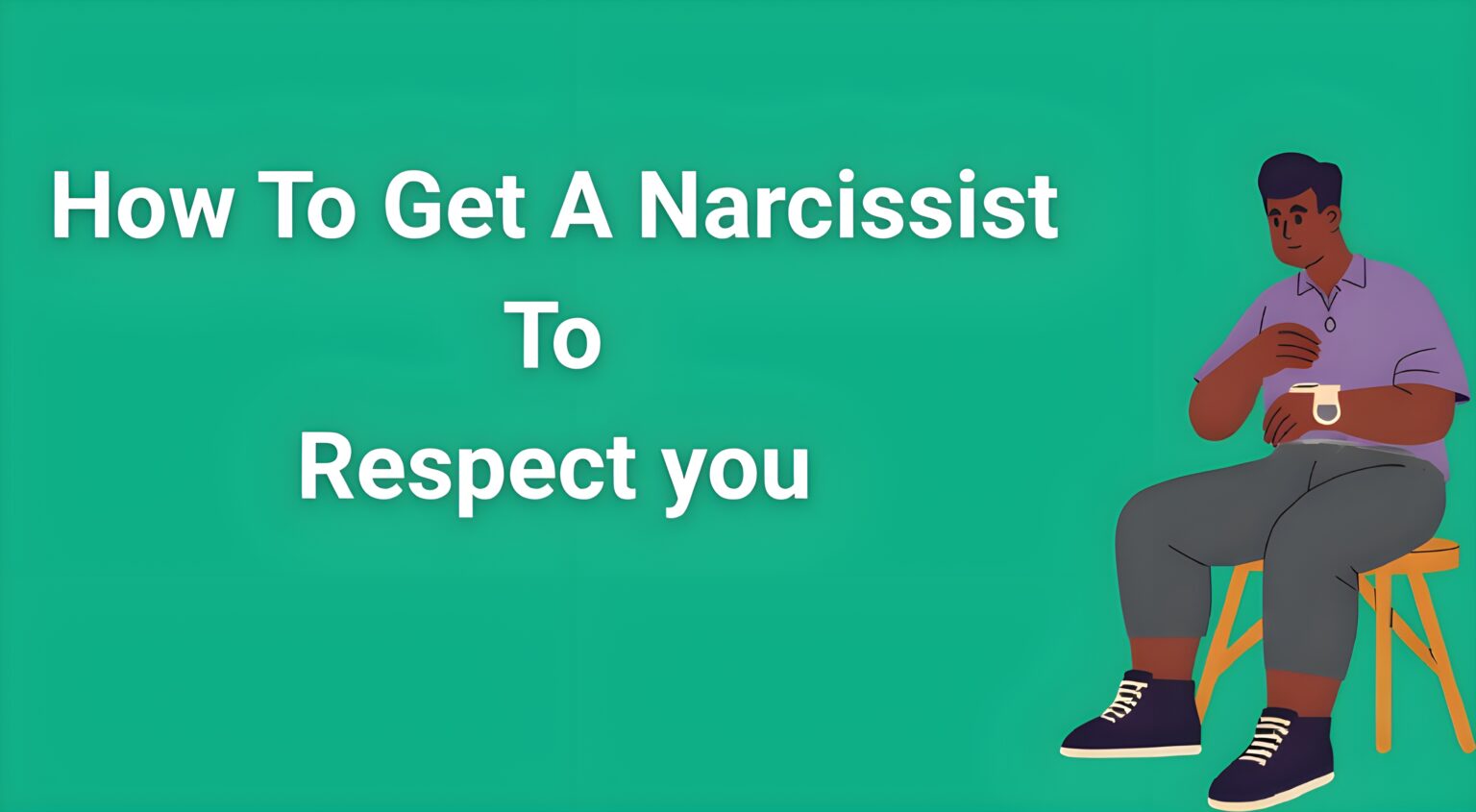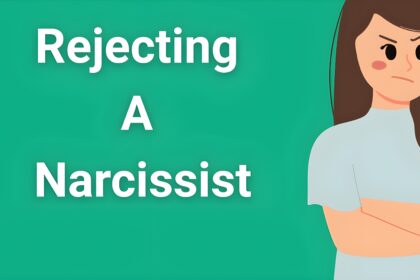Understanding how to get a narcissist to respect you feels like solving an impossible puzzle. You've probably tried being kinder, more understanding, or even more accommodating, only to find yourself feeling more drained and disrespected than before. The truth is, gaining respect from someone with narcissistic traits requires a completely different approach than what works in healthy relationships.
The relationship dynamic with a narcissistic person operates on fundamentally different principles. While most people respond to kindness with kindness, narcissistic individuals often interpret kindness as weakness to exploit. This creates a confusing cycle where your natural instincts to improve the relationship actually make it worse.
Research shows that narcissistic personality traits affect approximately 6% of the population, yet the impact extends far beyond those diagnosed with Narcissistic Personality Disorder (NPD). Whether you're dealing with a narcissistic partner, parent, boss, or friend, the strategies that follow can help you navigate these challenging dynamics while protecting your mental health and self-worth.
Understanding the Narcissistic Respect System
Before diving into strategies, it's crucial to understand what narcissists actually respect. Unlike emotionally healthy individuals who respect kindness, vulnerability, and authenticity, narcissistic people respect entirely different qualities.
Narcissists respect power, status, and anything that reflects well on them. They respect people who seem unattainable, those who don't need them, and individuals who maintain their own identity separate from the narcissist's influence. This counterintuitive dynamic explains why traditional relationship advice often backfires in narcissistic relationships.
The narcissistic mind operates on a hierarchy system where they constantly evaluate who holds more power or status. When you understand this framework, you can position yourself in a way that commands their respect rather than their contempt.
8 Psychology-Backed Strategies to Get a Narcissist to Respect You
1. Master the Art of Emotional Independence
The fastest way to earn narcissistic respect is to demonstrate that you don't need their approval for your emotional well-being. Narcissists are drawn to people they can control through emotional manipulation, but they respect those who remain unshakeable.
Emotional independence means maintaining your inner stability regardless of their mood swings, silent treatments, or attempts to provoke you. When a narcissist realizes they can't destabilize you emotionally, they begin to see you as an equal rather than a target.
Practice responding to their provocations with calm indifference. Instead of defending yourself when they criticize you, try responses like “That's interesting” or “I'll consider that.” This approach frustrates their attempts to control you while positioning you as someone who doesn't desperately seek their validation.
2. Establish and Enforce Non-Negotiable Boundaries
Narcissists respect boundaries when they're consistently enforced. However, setting boundaries with a narcissistic person requires a different approach than with emotionally healthy individuals. Your boundaries must be crystal clear, consequence-driven, and non-negotiable.
Effective boundaries focus on your actions, not their behavior. Instead of saying “You need to stop yelling at me,” try “I will leave the room if voices are raised.” This subtle shift puts you in control of the outcome rather than trying to control their behavior.
The key to boundary success lies in consistent enforcement. Narcissists will test every boundary multiple times to see if you'll maintain it. Each time you follow through on your stated consequence, you earn a little more respect in their mental hierarchy.
3. Cultivate Sources of Value Outside the Relationship
Narcissistic individuals respect people who have their own lives, achievements, and social connections. When your entire world revolves around them, you become less interesting and valuable in their perception. However, when you maintain independence and pursue your own goals, you become someone they want to be associated with.
Develop your career, maintain friendships, pursue hobbies, and create achievements that exist independently of your relationship with them. This doesn't mean you should neglect the relationship entirely, but rather ensure you have a full, rich life that doesn't depend on their participation or approval.
The more accomplished and socially connected you become, the more likely they are to respect you as someone worthy of their time and attention. Remember, narcissists want to be associated with impressive people because it reflects well on them.
4. Use Strategic Communication Techniques
How you communicate with a narcissistic person significantly impacts the respect you receive. Certain communication patterns trigger their defensive responses, while others position you as someone deserving of consideration.
Avoid lengthy explanations, justifications, or emotional appeals. Narcissists often interpret these as weakness or opportunities for further manipulation. Instead, use brief, confident statements that don't invite debate or negotiation.
When disagreeing with them, focus on facts rather than feelings. Say “That's not accurate” instead of “That hurts my feelings.” This approach reduces their ability to dismiss your concerns as emotional overreactions while maintaining your position clearly.
The “gray rock” technique can also be valuable in certain situations. By becoming boring and unresponsive to their attempts at drama, you remove yourself as a source of narcissistic supply while maintaining your dignity.
5. Demonstrate Financial and Social Independence
Financial dependence on a narcissistic person significantly undermines your ability to gain their respect. When they control your financial stability, they view you as subordinate in their mental hierarchy. Building financial independence, even gradually, shifts this dynamic considerably.
If immediate financial independence isn't possible, focus on developing skills and connections that could lead to independence. Take classes, build your resume, network with others in your field, and save money when possible. Even small steps toward financial autonomy send a powerful message about your self-respect and capabilities.
Social independence is equally important. Maintain relationships with family and friends outside of your connection with the narcissistic person. These relationships serve as both emotional support and evidence that others value you, which influences how the narcissist perceives your worth.
6. Master the Response vs. Reaction Distinction
Narcissists thrive on emotional reactions because they provide evidence of their power over you. Learning to respond thoughtfully rather than react emotionally is crucial for gaining their respect and protecting your mental health.
A reaction is immediate, emotional, and often defensive. A response is considered, calm, and strategic. When they say something hurtful, take a moment before speaking. This pause allows you to choose words that maintain your dignity rather than escalating the conflict.
Practice phrases like “I need to think about that” or “Let me get back to you on that.” These responses buy you time to formulate a thoughtful reply while demonstrating that you won't be rushed into emotional decisions.
7. Understand and Navigate Their Image Management
Narcissistic individuals are extremely concerned with how others perceive them. You can leverage this concern to influence their behavior toward you, especially in social situations. They're more likely to treat you respectfully when others are watching because maintaining their image is paramount.
Use this awareness strategically by addressing important issues when others are present or by involving mutual friends or family members in significant discussions. The narcissist's need to appear reasonable and caring in front of others often leads to more respectful treatment.
However, be prepared for potential retaliation when you're alone together. Narcissists may punish you privately for any perceived embarrassment in public settings. This is why having strong boundaries and support systems is crucial.
8. Maintain Your Identity and Values
Perhaps the most important strategy for gaining narcissistic respect is refusing to lose yourself in the relationship. Narcissists often attempt to mold their partners, family members, or friends into extensions of themselves. Resisting this pressure and maintaining your authentic identity demonstrates strength they're compelled to respect.
Continue pursuing your interests, maintaining your values, and expressing your opinions even when they differ from theirs. This doesn't mean being deliberately oppositional, but rather staying true to who you are regardless of their attempts to change you.
When you consistently demonstrate that you cannot be controlled or manipulated into becoming someone else, you establish yourself as an individual worthy of respect rather than a person to be dominated.
The Reality of Narcissistic Relationships
While these strategies can help you gain more respect and improve your treatment within a narcissistic relationship, it's important to understand the limitations. True narcissistic personality disorder involves a fundamental inability to empathize with others or form genuine emotional connections.
Even when you successfully implement these strategies, you may find that the relationship still lacks the warmth, mutual support, and emotional intimacy that characterize healthy connections. The respect you gain may be more transactional than genuine, based on what you provide them rather than who you are as a person.
Many people in narcissistic relationships find themselves constantly walking on eggshells, managing the other person's emotions, and sacrificing their own needs to maintain peace. If this describes your experience, it's worth examining whether the relationship is truly serving your well-being, regardless of any respect you might gain.
When Professional Help Becomes Necessary
Navigating a relationship with someone who has narcissistic traits can be emotionally exhausting and psychologically damaging. The constant need to manage another person's reactions while protecting yourself takes a significant toll on your mental health.
If you find yourself questioning your own memories, feeling increasingly isolated from friends and family, or experiencing symptoms of anxiety and depression, professional support is crucial. A therapist experienced in narcissistic abuse can help you develop coping strategies, rebuild your self-esteem, and make informed decisions about your relationship.
The pattern of emotional manipulation common in narcissistic relationships can create trauma bonds that make it difficult to think clearly about your situation. Professional guidance can provide the objective perspective and emotional support needed to navigate these complex dynamics.
For those seeking immediate clarity about their situation, a personalized analysis can help identify specific patterns of manipulation and provide targeted strategies for your unique circumstances. Understanding exactly what you're dealing with is the first step toward protecting yourself and making informed decisions about your future.
Breaking Free from Trauma Bonds
One of the most challenging aspects of narcissistic relationships is the trauma bond that often develops. This psychological phenomenon creates an addictive cycle where the intermittent reinforcement of affection and cruelty triggers the same brain chemistry as substance addiction.
Understanding trauma bonds is crucial because willpower alone rarely breaks these neurological patterns. The attachment feels overwhelming precisely because it operates on a biochemical level, not just an emotional one. This explains why even people who intellectually know the relationship is harmful find themselves unable to leave or maintain distance.
Breaking trauma bonds requires a systematic approach that addresses both the psychological and neurological aspects of the attachment. This process often involves specific daily practices designed to rewire your brain's response patterns and rebuild your sense of identity outside the relationship.
A structured 30-day approach can provide the framework needed to break these patterns safely and effectively. This process focuses on emergency stabilization during withdrawal periods, breaking the addiction cycle through proven techniques, reconstructing your sense of reality, and reclaiming your identity separate from the narcissistic person.
Creating a Safety Plan
Whether you choose to stay in the relationship or leave, having a safety plan is essential when dealing with narcissistic individuals. These relationships can escalate unpredictably, particularly when the narcissistic person feels their control slipping.
Your safety plan should include both emotional and practical elements. Emotionally, this means having a support network of people who understand your situation and can provide perspective when you're feeling confused or manipulated. Practically, it might involve having access to your own financial resources, important documents, and a place to stay if needed.
For those who cannot leave immediately due to financial constraints, children, or other circumstances, learning how to survive and protect yourself within the relationship becomes crucial. This involves specific strategies for minimizing conflict, protecting your children from manipulation, and maintaining your mental health during a difficult period.
The goal isn't to remain in a harmful situation permanently, but rather to build the strength and resources needed to eventually create a healthier life for yourself and your loved ones.
Frequently Asked Questions
Can a narcissist truly change and learn to respect others?
While personality change is possible, it requires genuine recognition of problematic behaviors and sustained effort over many years. Most people with narcissistic traits lack the insight or motivation necessary for meaningful change. Focus on protecting yourself rather than trying to change them.
Why do I feel guilty when I set boundaries with a narcissistic person?
Guilt often results from years of conditioning where your needs were consistently dismissed or criticized. Narcissistic individuals are skilled at making others feel selfish for having basic boundaries. This guilt is a sign that boundaries are necessary, not that you're doing something wrong.
Is it possible to have a healthy relationship with someone who has narcissistic traits?
The severity of narcissistic traits varies significantly. Some people with mild narcissistic tendencies can maintain relationships when their partners set strong boundaries. However, true narcissistic personality disorder makes genuine intimacy and emotional reciprocity extremely difficult.
How do I protect my children from a narcissistic co-parent?
Document concerning behaviors, maintain consistent routines, validate your children's feelings, and consider family therapy with a professional experienced in narcissistic abuse. Avoid speaking negatively about the narcissistic parent to your children, but do teach them healthy boundaries.
What should I do if I recognize these patterns in myself?
Self-awareness is the first step toward change. Consider working with a therapist who can help you explore these patterns and develop healthier relationship skills. Many narcissistic behaviors develop as protective mechanisms and can be addressed with appropriate support.
Conclusion
Learning how to get a narcissist to respect you requires understanding their unique psychology and responding accordingly. While the strategies outlined above can significantly improve your treatment and reduce conflict, they also serve a deeper purpose: they help you reclaim your power and self-worth within a challenging dynamic.
Remember that earning respect from a narcissistic person may not result in the warm, loving relationship you desire. The respect you gain will likely be based on what you represent to them rather than genuine appreciation for who you are. This reality doesn't diminish the value of these strategies, but it does help set realistic expectations.
Ultimately, the most important person who needs to respect you is yourself. Whether you choose to continue working on a relationship with a narcissistic individual or decide to distance yourself, maintaining your own self-respect and well-being must remain the priority.
Your worth isn't determined by how others treat you, including narcissistic individuals who may be incapable of recognizing your value. By implementing these strategies, you're not just improving a difficult relationship – you're demonstrating to yourself that you deserve to be treated with dignity and respect, regardless of others' limitations.






